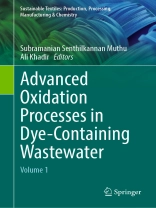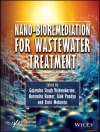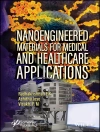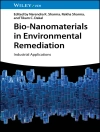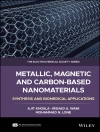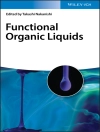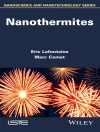Among various industries releasing wastewater into the environment, printing, dyeing and textile industries are of great importance as they frequently contain high amounts of colorful compounds having high chemical and biological oxygen demands. Health related effects of colorants are extensively reported; which necessitates the seriousness of dye removal from water and wastewater. The utilization of advanced oxidation processes (AOPs) in dye degradation has gained considerable attention recently due to the release of high energetic radicals as oxidants that are capable of removing dye compounds. This Volume 1 presents versatile applications of AOPs in dye removal. Accordingly, processes such as Ozone-based AOPs, UV irradiation, catalytic AOPs, etc are discussed with the aim of dye removal under different operational parameters. The role of different nanoparticles is also investigated. By presenting the fundamentals of AOPs as well as recent advances, this book is useful for environmental engineers and chemists who are concerned with wastewater pollution and treatment.
İçerik tablosu
Fundamental of Advanced Oxidation Processes.- Fenton Processes in Dye Removal.- Treatment of textile indutrial dyes using natural sunlight driven methodes.- Solar Photocatalytic Treatment of Dye Removal.- Photo(Catalytic) Oxidation Processes for the Removal of Dye: focusing on Ti O2 performance.- Ozone Based Processes in Dye Removal.- Nanomaterials in Advanced Oxidation Processes (AOPs) in Anionic Dye Removal.- Sustainable development of nanomaterials for removal of dyes from water and wastewater.- Textile Waste Water Treatment Using Sustainable Technologies: Advanced Oxidation and Degradation using Metal Ions and Polymeric Materials.- Multiphase reactors in photocatalytic treatment of dye wastewaters: Design and scaleup considerations.- Enhanced Methylene Blue Degradation onto Fenton-like catalysts based on g-C3N4-Mg Fe2O4 composites.- Metal oxide heterostructured nanocomposites for wastewater treatment.- Electrocoagulation technology for wastewater treatment: Mechanism and applications.- Carbonaceous-Ti O2 Photocatalyst for Treatment of Textile Dye-Contaminated Wastewater.
Yazar hakkında
Dr. Subramanian Senthilkannan Muthu currently works for Sg T Group as Head of Sustainability, and is based out of Hong Kong. He earned his Ph D from The Hong Kong Polytechnic University, and is a renowned expert in the areas of Environmental Sustainability in Textiles & Clothing Supply Chain, Product Life Cycle Assessment (LCA) and Product Carbon Footprint Assessment (PCF) in various industrial sectors. He has five years of industrial experience in textile manufacturing, research and development and textile testing and over a decade’s of experience in life cycle assessment (LCA), carbon and ecological footprints assessment of various consumer products. He has published more than 100 research publications, written numerous book chapters and authored/edited over 100 books in the areas of Carbon Footprint, Recycling, Environmental Assessment and Environmental Sustainability.
Dr. Ali Khadir is an environmental engineer and a member of the Young Researcher and Elite Club, Islamic Azad University of Shahre Rey Branch, Tehran, Iran. He has published several articles and book chapters in reputed international publishers, including Elsevier, Springer, Taylor & Francis, and Wiley. His articles have been published in journals with IF of greater than 4, including Journal of Environmental Chemical Engineering and International Journal of Biological Macromolecules. He also has been the reviewer of journals and international conferences. His research interests center on emerging pollutants, dyes, and pharmaceuticals in aquatic media, advanced water and wastewater remediation techniques and technology.
